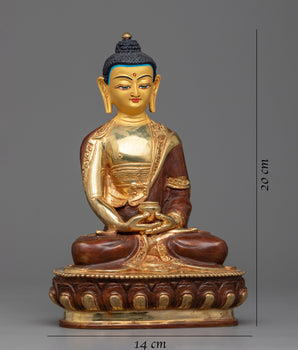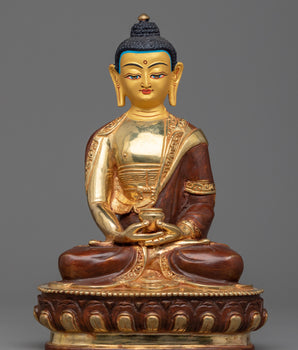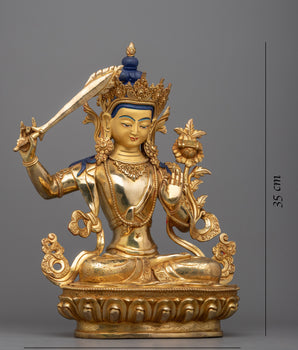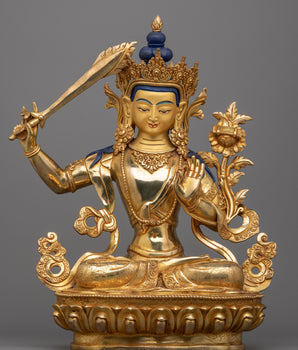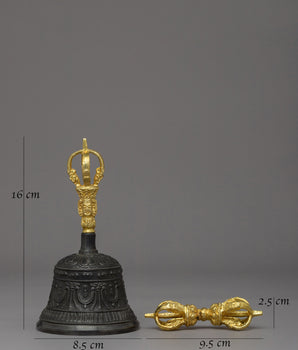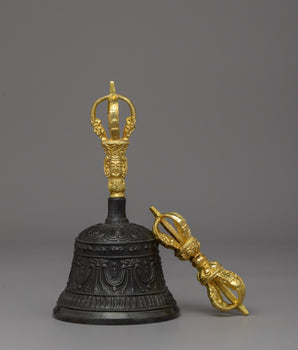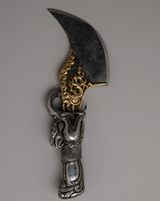
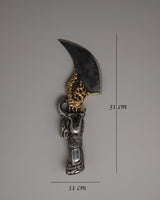
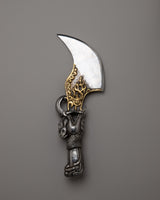
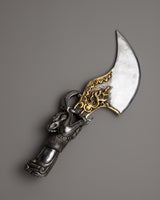
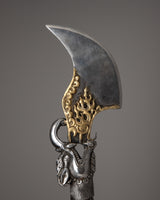
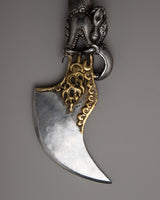
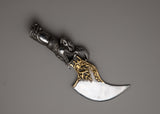
Buddhist Knife | Symbol of Spiritual Protection and Sacred Rituals

100% AUTHENTIC

HANDMADE

FREE SHIPPING
Buddhist Knife
About Our Buddhist Knife
The Buddhist Knife is an exquisite example of a combination of spiritual symbolism and skillful craftsmanship. It has an iron body with a brilliant yellow brass highlight. This expertly crafted knife has great symbolic meaning in Buddhist rituals, representing the slicing through of ignorance and impediments to enlightenment. Its solid iron structure guarantees longevity, and the brass accents give it an elegant, reverent look.
The Buddhist knife is an important ceremonial tool that is used in many rituals and ceremonies. It is a powerful representation of knowledge and judgment. Its dual-material structure reflects the Buddhist philosophy's balanced approach to spiritual development and embodies the blending of wisdom and compassion. This knife symbolizes the core of Buddhist teachings and the pursuit of inner freedom, whether it is utilized in ceremonial offerings or is held in high regard as a reminder of the transformational potential of spiritual practice.
Introduction To The Dagger :
In Tibetan traditions, a Tibetan knife, also called a "phurba" or "kila," has cultural and symbolic meaning. The unique three-sided blade of this ceremonial dagger represents the victory over ignorance, desire, and aversion in Buddhism. Tibetan knives, which are adorned with elaborate carvings and frequently have a tripartite handle that represents different gods, are an essential part of religious rites, ceremonies, and spiritual practices. In addition to their spiritual significance, these knives might have practical uses in daily life, exhibiting in Tibetan communities a combination of deep cultural symbolism and usefulness.
-------------------------------------
Size: 31 cm(Height) x 11 cm(Width)
Weight: 1.02 kg
Materials: Iron, Brass
-------------------------------------
How to set up your own Buddhist Shrine?
-Find a clean, quiet, and uncluttered spot
-Set up an altar table, and cover it with an altar cloth that calls to you
-Place your sacred item (statue, thangka, or a picture of Buddha) at the center












